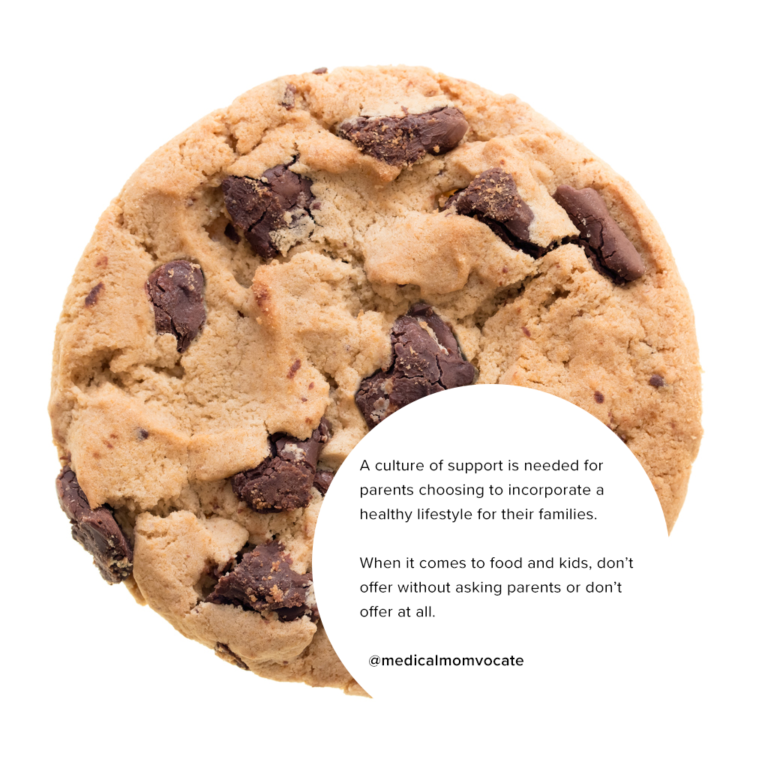The other day, on a routine daily trek around the block, a well-intentioned neighbor offered my son, Alex, a chocolate chip cookie. And I crumbled inside.
You may be thinking “what’s the big deal?’ While I was thinking, “God, can’t we even walk around the block?”
Because a chocolate chip cookie can have dire consequences on Alex – both physically and mentally.
Alex’s mechanics of hunger and thirst were damaged with the removal of his brain tumor, resulting in a slow metabolism and reduced energy expenditure, which means he can gain weight very easily.
The condition is termed hypothalamic obesity (HO). Most patients who suffer from it gain weight despite caloric restrictions or exercise. Some also experience hyperphagia which is unrelenting hunger and inability to get full after eating. HO can lead to further complications like non-alcoholic fatty liver disease, type 2 diabetes and cardiovascular issues. Add that list to an already big list of health issues from his tumor.
Raising a metabolically-challenged child in an obesogenic culture.
The other day, on a routine daily trek around the block, a well-intentioned neighbor offered my son, Alex, a chocolate chip cookie. And I crumbled inside.
You may be thinking “what’s the big deal?’ While I was thinking, “God, can’t we even walk around the block?”
Because a chocolate chip cookie can have dire consequences on Alex – both physically and mentally.
Alex’s mechanics of hunger and thirst were damaged with the removal of his brain tumor, resulting in a slow metabolism and reduced energy expenditure, which means he can gain weight very easily.
The condition is termed hypothalamic obesity (HO). Most patients who suffer from it gain weight despite caloric restrictions or exercise. Some also experience hyperphagia which is unrelenting hunger and inability to get full after eating. HO can lead to further complications like non-alcoholic fatty liver disease, type 2 diabetes and cardiovascular issues. Add that list to an already big list of health issues from his tumor.
We work to ensure that Alex has the best nutrition plan possible for his condition. Whole, unprocessed foods, limited sugar and starches, carb counting and very occasional treats have allowed us to manage his condition to some degree. We also have to lock the refrigerator because food stealing is part of this complex condition so even the “good” foods have to have restricted access.
Often it feels like us against the world.
I am always having to police food while doing battle with myself trying to negotiate this struggle. To add to it, I have been on the receiving end of negative backlash from others for being “so strict,” where there is clearly a lack of understanding of the deeper challenges that come with this condition.
The neighbor with the cookie, treats at school, holidays, social gatherings, ridiculously large portions at restaurants – everywhere we turn, we are doing battle. It’s really stressful.
You may have heard the term “obesogenic environment” or “obesogenic culture” which refers to obesity predictors based on surroundings, opportunities or conditions of life. The most recent Robert Wood Johnson State of Childhood Obesity data shows that 19.3% of children between the ages of 2-19 in the United States are obese with that rate on the rise during the pandemic.
Also in that data, In the U.S., childhood obesity alone is estimated to cost $14 billion annually in direct health expenses.
And parents are swimming against the current. Whether its the cost of healthy food, cultural inclinations, conflicting information (are carbs bad or good?) or just limited knowledge how to live a healthy lifestyle. Everywhere we turn, the food that is endangering our health is readily available and we have to summon all of our power to work around it. This even means avoiding the neighbors.
A culture of support is needed for parents choosing to incorporate a healthy lifestyle for their families. And an understanding that many people, including children, face medical challenges – like type 2 diabetes – that could be improved with better food choices. Offering a child a sweet treat is not kindness or caring although it may seem to be a nice gesture. It is contributing to a health crisis and an undermining of parents trying to incorporate healthy habits.
As I mentally prepare to run interference on candy hearts and chocolates with Valentine’s Day ahead, I am sending up a plea. When it comes to food and kids, don’t offer without asking parents or don’t offer at all.
Find out more about hypothalamic obesity.
Watch a video about managing hypothalamic obesity around the holidays.

